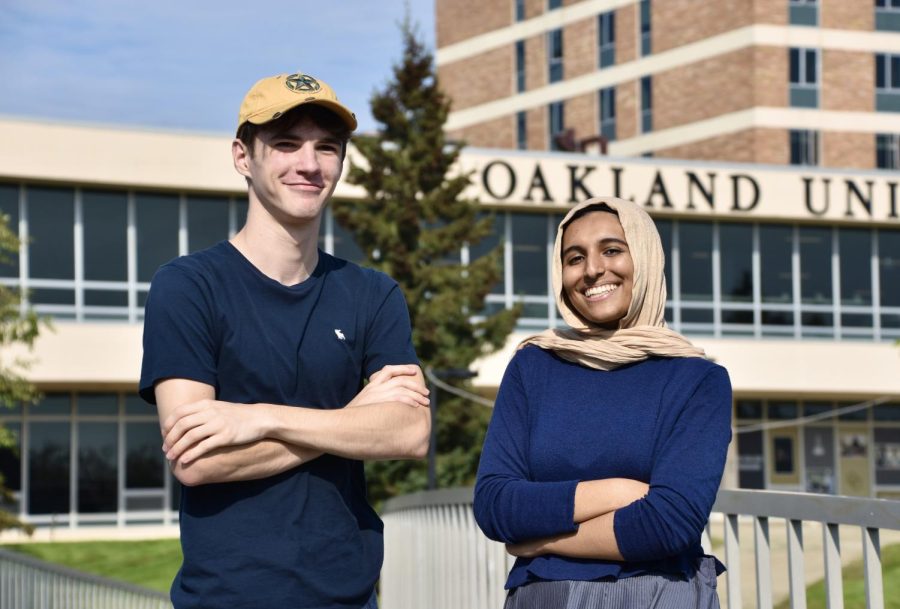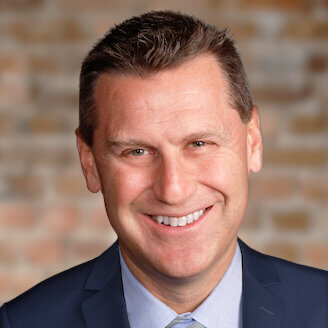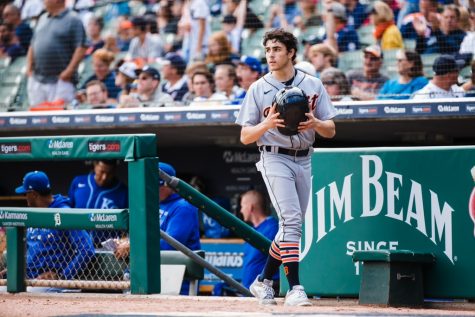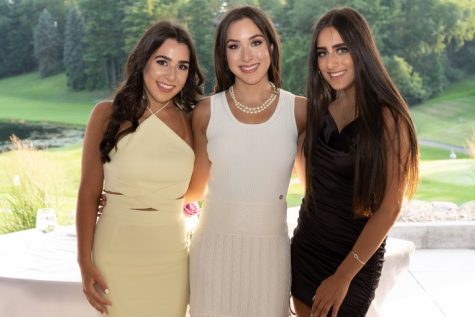People of OU: OUSC VP strives for long lasting impact, representation
Student body President Andrew Romano and Vice President Murryum Farooqi.
Stepping into the role of Student Congress (OUSC) vice president last October, Murryum Farooqi wants to create a cooperative, accessible climate in OUSC — one where students aren’t afraid to speak out and stand up for what they believe is right.
Beginning as a legislator in fall 2020, Farooqi also served as Diversity and Inclusion Director in spring of 2021 before being elected to her current role.
Farooqi takes her role sincerely and earnestly, working to be a voice for the student body by pushing initiatives, listening to others and creating a supportive environment.
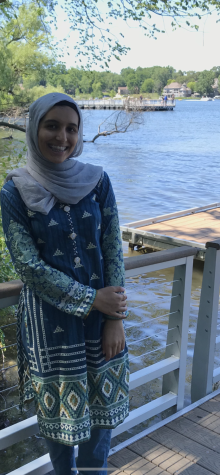
“[I want to] represent the students, and also represent minorities, that’s something that only really happens when you have people of color and minorities in those positions,” Farooqi said. “That’s not the only solution [you need to implement] — but especially in OUSC — it’s really important to have everybody.”
Some of Farooqi — and Student Body president Andrew Romano’s — initiatives include the textbook petition, which aims to provide affordable course materials, the Raise the Wage campaign striving for a $15 minimum wage, potentially creating a committee for indigenous groups and working to give land back with an outdoor workspace, along with looking into additional ways to reduce the cost of college and other various initiatives.
Additional initiatives aren’t as publicized, but OUSC does address and troubleshoot a wide variety of issues — such as Graham Health Center counseling, dining hall sustainability, among others.
“We hope our change is permanent and helps students,” Farooqi said. “That’s why anyone is in student congress — you want to make a difference on campus and make things easier for your peers.”
Farooqi also wants to foster a positive, accepting climate in OUSC — one where empathy and problem solving can flourish.
“[For me], it’s important to be compassionate and open. It’s also important for people to not be afraid to ask questions. I ask a lot of questions — that’s been my trademark in many math classes: the question-asker. But it’s important to create an environment where people aren’t afraid to ask questions, you shouldn’t put someone down for not knowing something. Own up to your biases, and be open about what you don’t know.”
Additionally, Farooqi wants to ensure no student is overlooked — such as people of color and the Muslim community on campus — but believes everything is “interconnected,” and only focusing on one group can be harmful.
“It can be harmful to say ‘I’m only representing these people and I’m not going to do anything else.’ Fighting for one minority is helping another minority — it ends up being more harmful if you’re only focusing on one group, or say you only care about one.”
In terms of being a leader, Farooqi humbly says she’s still getting used to everything, but it’s obvious from speaking to her: she possesses extremely admirable qualities, is passionate about representing students and motivated to make campus a better place moving forward.
Farooqi is empowering the campus community in more ways than one. As an individual who wears traditional cultural clothing, Farooqi mentioned she hopes to “fight back against the narrative that nonwestern clothing is primitive or uncivilized or not American.”
Born and raised in America, Farooqi’s family has roots in Pakistan. She hopes to inspire others on campus, presenting what she calls nonwestern clothing, as normal and accepted.
“I want to hopefully help empower my peers on campus who might love their traditional clothing, but are afraid to wear it. Pakistani culture is a part of who I am and it doesn’t make me any less American. It’s the same concept when it comes to being a student leader that wears hijab — people always connect hijab or covering up to oppression, so women and girls wearing hijab are seen as weak and powerless. Being someone who wears hijab in a position of relative power definitely sends the opposite message.”



